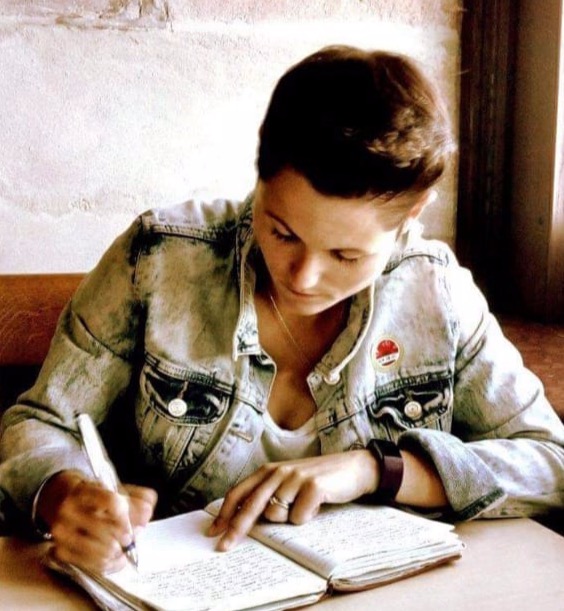'The Secret Room' Corrie Ten Boom and the Holocaust
- Ash Percival-Borley

- Jan 27, 2021
- 3 min read

'28th February 1944 – The day of our arrest…
My terrifying journey began on a miserable February afternoon. I had been suffering from a slight cold, so my head was throbbing, and my throat was sore. I was lying on my bed and focusing on the soothing voices of my father and sister downstairs. I could hear the mutter of conversation as the Jews we were hiding were playing chess with our old chessboard. A luxury we allowed them during these dark repressive winter days, to keep their spirits up and free them from the small hidden room they occupied for most of the day and night. I was surprised to hear my sister Betsy walk towards our door, at the same time a flurry of quiet movement told me the Jews were pouring into the secret room, the hidden door closed quickly behind them. I heard Betsy shout and heavy boots storm into our home. I quickly got up and ran downstairs, I was greeted by a Gestapo man who knocked me to the ground. I fell hard, my head spinning. He grabbed my hair and pulled me sharply to my feet.
“Where are they!” he snarled. He hit me again, causing blood to pour from my perforated lip.
“God help me!” I shouted, pain rippling through my body as he punched me hard in the stomach. I gasped as he dropped me to the floor and used his heavy boot to kick me away towards the other end of the room where the rest of my family stood at gunpoint. I pushed myself painfully to my feet, my Father reached for me and held me tight, caressing my now bruised face. We clung to each other as we were roughly marched out of our house, we heard the soldiers, smashing and ripping and tearing apart our family home, looking for our Jews. We were all numb as they forced us into the back of an open truck. Another Gestapo officer addressed my Father.
“Old man, if you behave yourself you can die in your own bed”. My father sat upright his arm around my sister Betsy and spoke.
“If I stay, I will open my door to anyone who needs it”.
The officer scowled, as the truck lurched suddenly and began to pull away. We watched our home recede into the distance as we silently contemplated our fate. Little did we know that no-one but me would see our beloved house again.'
This is a dramatised account of the Dutch watchmaker Corrie Ten Boom who alongside her family was a part of the local Dutch resistance network and helped to hide Jews before being betrayed and arrested. Her father, Casper, died ten days after being arrested in Scheveningen Prison but not before receiving a note to say the Jews they were hiding had not been found and had escaped to safety. Corrie and her sister Betsy were sent on to Ravensbruck concentration camp. Betsy was 59 years old when she arrived in Ravensbruck and her health deteriorated quickly, Corrie had managed to hide vitamin drops and tried desperately to supplement her sister’s food so she might regain her health. Tragically, Betsy died on 16th December 1944. Corrie was crushed by this, but twelve days later a miracle occurred. Corrie was told to gather what belongings she had, as she was being released. Her release had occurred due to a clerical error, and later she found out that a mere seven days after her freedom all the women in her hut had been sent to the gas chamber.
Corrie Ten Boom wrote about her experience in the heart-wrenching novel The Hidden Place, which was made into a film in 1975. She died aged 91 in the US on 15 April 1983. Today on Holocaust Remembrance Day, Corrie Ten Booms story is one of many that fought against the evils of the holocaust. It is a story of moral strength, tragedy, sadness, and triumph. Of superhuman bravery and the will to survive.
Today we remember that ‘to save one life is to save the world entire’.
.png)



Comments